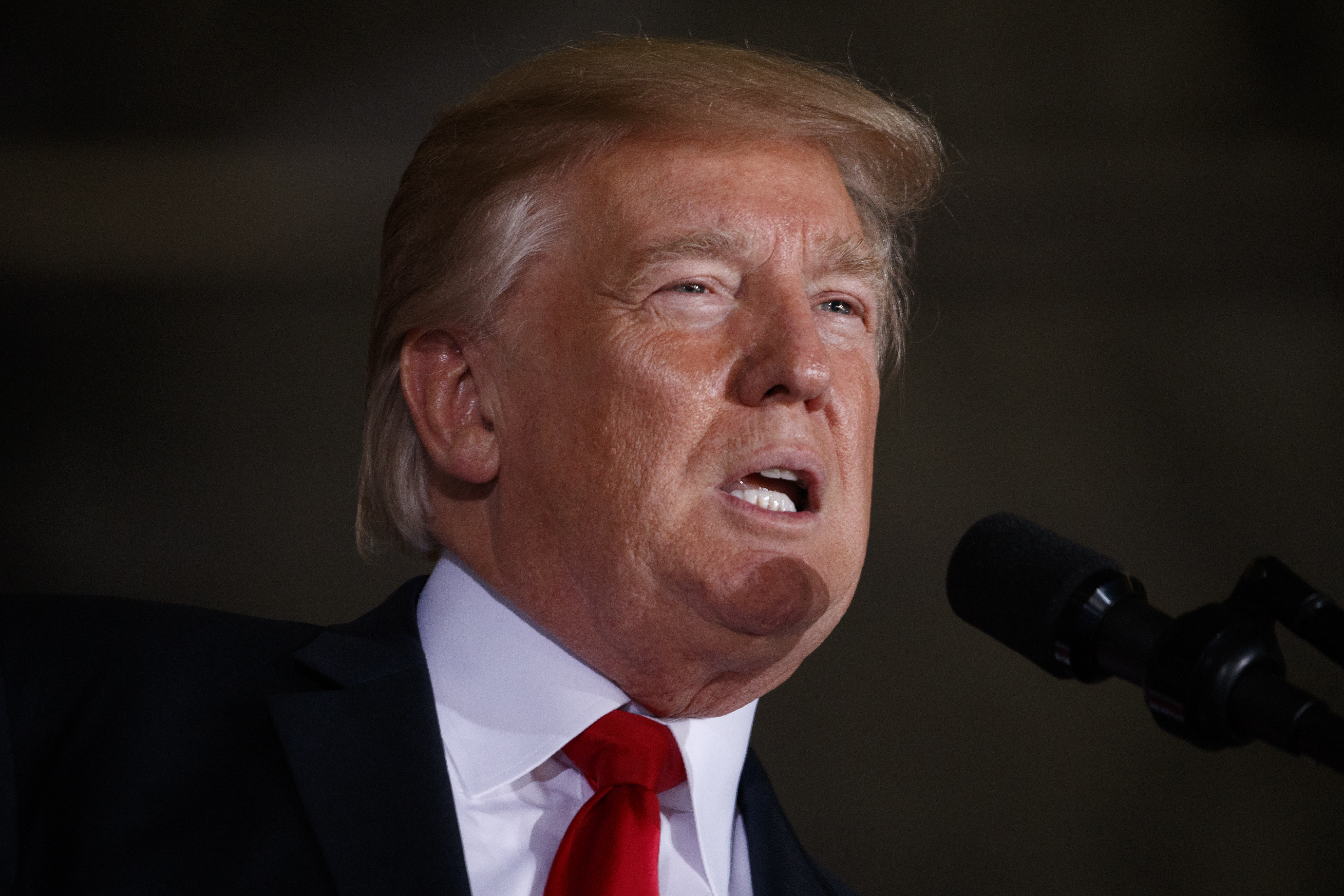The United Nations convenes this week for its annual General Assembly speeches and meetings, with President Donald Trump making his debut appearance before the general assembly.
While Trump commended UN Secretary General Antonio Guterres’ efforts to reform the UN in comments on Monday, he and his administration have a packed schedule of high-level meetings over the next week with diplomats to try to sort out many of the world’s biggest issues.
Trump’s comments on Monday, which came at the US-sponsored “Reforming the United Nations: Management, Security, and Development” forum, included sharp words for the UN.
The UN “has not reached its full potential because of bureaucracy and mismanagement,” Trump said, adding that the group spends too much money and has too many staffers.
Trump will make his first speech to the UN General Assembly, which consists of all 193 member nations, on Tuesday morning.
Here are the three most-pressing issues that will likely take center stage during this week's events.
North Korea

The most pressing international security threat that the world currently faces is North Korea's escalating aggression and the continued testing of its nuclear missile program.
The rogue nation fired a missile over Japan on Friday for the second time in two months.
Earlier this month, North Korea conducted its sixth and most powerful nuclear test, one the country said was a hydrogen bomb.
In August, following reports from the Defense Intelligence Agency that North Korea could make nuclear warheads small enough to fit on missiles and could have as many as 60 nuclear devices, Trump issued a sharp warning to the country.
North Korea "best not make any more threats to the United States" or it will "be met with fire and fury like the world has never seen," Trump said at the time, according to press pool reports.
Recently, the UN Security Council unanimously approved sanctions on North Korea, imposing a cap on crude-oil imports and banned exports of textiles. However, Trump and Secretary of State Rex Tillerson have downplayed their efficacy.
"With respect to the UN Security Council resolution and the president's view that it was a small step, I share that view," Tillerson said during a press conference last Thursday. "We had hoped for a much stronger resolution from the Security Council."
Trump has criticized China in the past for not doing enough to quell North Korea's threat. In July, the president tweeted that he was "very disappointed" with China for doing "NOTHING for us with North Korea, just talk."
"China could easily solve this problem," Trump continued.
On Monday, however, the White House announced that Trump and Chinese president Xi Jinping have agreed on "maximizing pressure" on North Korea.
The plight of the Rohingya

Another hot-button issue the UN will likely need to confront centers around the current situation faced by the Rohingya, a group often described as "the world's most persecuted minority."
The Rohingya are a predominantly Muslim ethnic group that have lived for centuries in Buddhist-dominated Myanmar's Rakhine State.
Over the last few decades, a series of crackdowns have forced hundreds of thousands of Rohingya to flee to neighboring countries like Malaysia and Bangladesh. The Rohingya and human rights groups have attributed the crackdowns to Myanmar's government, which has struggled in recent years to move from a military-controlled junta to a democracy headed by elected leader Aung San Suu Kyi.
A UN official accused the government of carrying out "ethnic cleansing" of the Rohingya in November 2016, according to Al Jazeera.
Rohingya militants staged a series of deadly attacks in Rakhine State last month, prompting an aggressive response from Myanmar's government forces, Reuters reported. At least 430,000 Rohingya have since fled into Bangladesh to avoid further attacks.
A Human Rights Watch researcher stationed on the Myanmar-Bangladesh border described Rakhine State on Monday as "still on fire."
"This is a crisis of the highest order and it's just beginning," the researcher added.
White House press secretary Sarah Sanders told reporters earlier this month that Trump is "aware of the situation and monitoring."
Climate change

The issue of climate change will also likely take center stage, particularly following Trump's widely-panned decision to pull the US out of the landmark Paris climate deal in June.
Gary Cohn, Trump's senior economic adviser, told the UN on Monday that the president plans to withdraw from the agreement unless US is able to secure a favorable renegotiation.
"We made the president's position unambiguous, to where the president stands, where the administration stands on Paris," Cohn said during an informal meeting with about a dozen foreign dignitaries on the sidelines of the summit.
The international community came out in force against Trump's decision, and it's likely world leaders will continue pushing for action on climate change this week.
A series of natural disasters in the US and abroad have also added a layer of urgency to the talks. This month, Hurricane Harvey and Hurricane Irma ravaged parts of the US and the Caribbean, leaving catastrophic damage in their wake.
On Monday, it emerged that a third hurricane, Hurricane Jose, is traveling up the East Coast of the US and could affect an area from North Carolina to New England, according to the latest forecast from the National Hurricane Center.
India, Nepal, and Bangladesh are also recovering from severe monsoon flooding that killed over 1,200 people this summer in what international aid agencies called one of the worst episodes in years.

